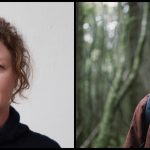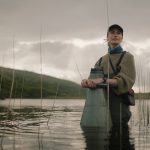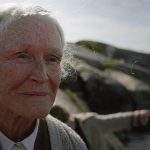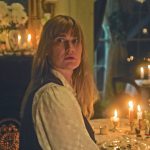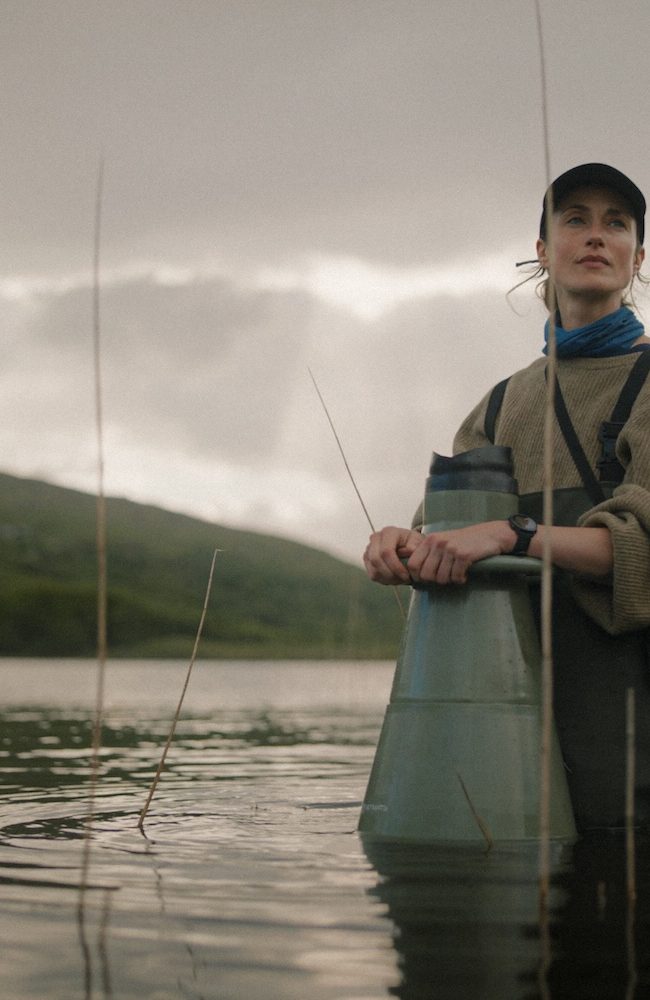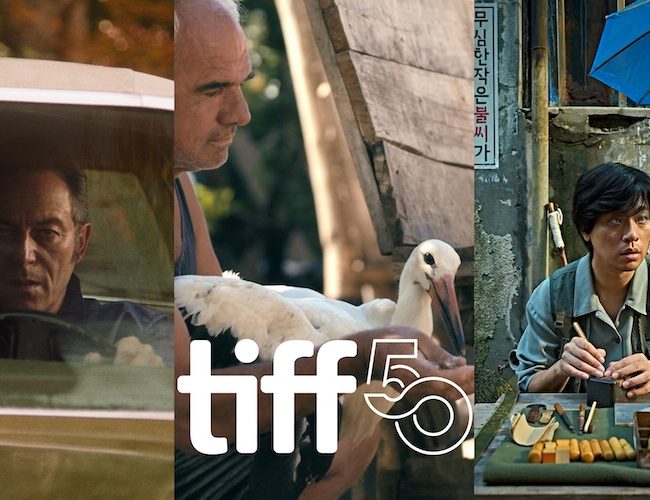A Conversation with Nanouk Leopold & Natasha O’Keefe (WHITETAIL)
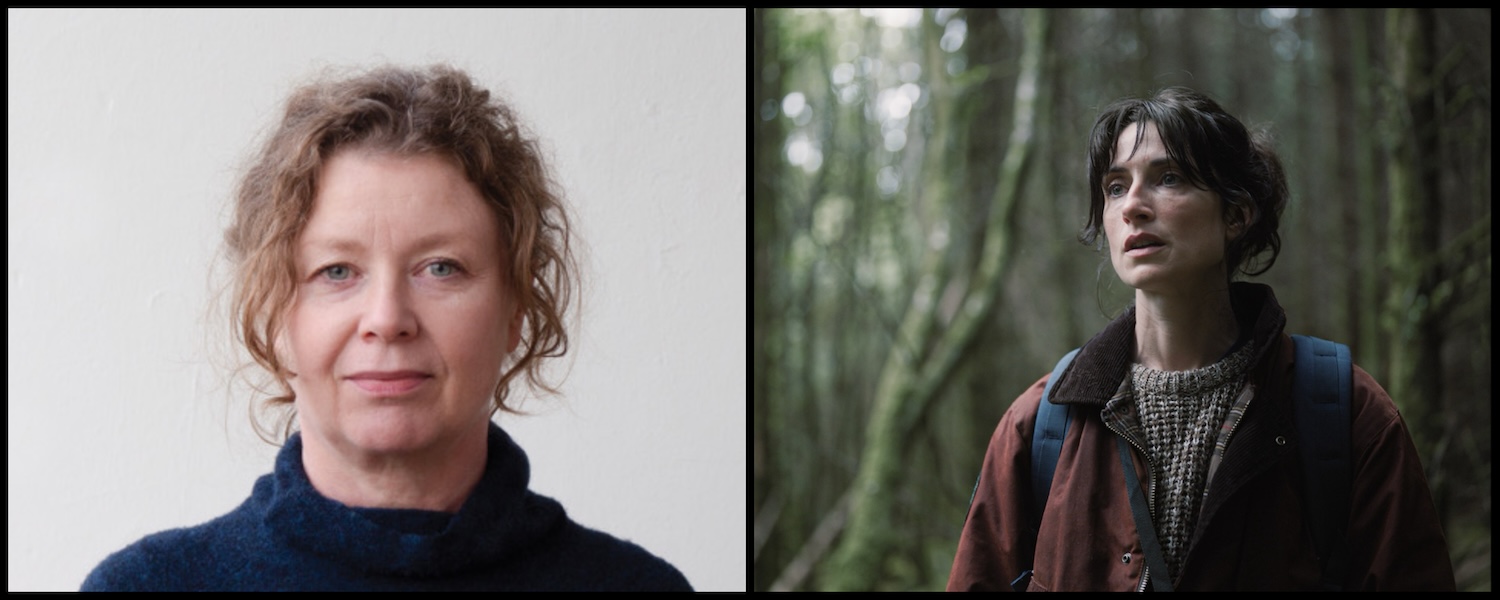
Director Nanouk Leopold’s latest film, Whitetail, just premiered at TIFF 2025, where I reviewed it. The movie tells the story of Jen (Natasha O’Keefe), an Irish woman living and working in County Kerry as a conservation park ranger. The woods she now patrols are the location of a childhood accident that caused a death in the family, for which Jen was responsible. She has never recovered from that trauma, and now lives with her aging father (Andrew Bennett), who worries about what will happen to Jen when he is gone. When Oliver (Aaron McCusker), the boyfriend of her teenage years, returns to the area, Jen is forced to confront all the buried memories of the past, and it is not pleasant. Just before the festival, I had the chance to speak with Leopold and O’Keefe via Zoom, and what follows is a transcript of that conversation, edited for length and clarity. Leopold is Dutch, but her English is quite good.
Hammer to Nail: Nanouk, you write in the press notes that “realism is important, not naturalism,” and you cite as influences films like Wuthering Heights, Certain Women (by Kelly Reichardt) and Don’t Look Now (by Nicolas Roeg). So, what is the difference between realism and naturalism, for you?
Nanouk Leopold: Well, for this film, we needed a forest because the whole story is about a woman taking care of a nature reserve, which is made out of a forest for the most part. And I found out that the freshest and best forest there is may not be the one that’s most cinematically challenging to see. So there, you already stray from your purpose. I wanted to show that there’s a forest that is dead and that needs regeneration and that needs diversity in trees. And that’s what the main character is doing by replanting oak trees and ash and holly and all those kinds of things. But the way you do it is you find the best sites. This is a very practical example, but it is what you want to focus on, what you heighten. And that’s also story-wise and acting-wise; you have to believe it and you have to go into this story.
HtN: Speaking of locations, you are a Dutch filmmaker. Why set this film in Ireland?
NL: Well, I wanted to make an English-language film, and someone pointed out a very beautiful area of Ireland to me. And then I took my family on holiday there, not really telling them that I was scouting locations for a film. And then I saw the most beautiful parts and actually many of them are in the film, like the house where Jen and her father lives is the camping site where I was camping with my family and all kinds of nature reserves are in the neighborhood there. It speaks to me, the country.
HtN: Why did you want to make an English-language film?
NL: Well, I’m a Dutch filmmaker and I’ve made six films so far. This is my seventh film. It’s about broadening your horizons and being able to work with people like Natasha, who is amazing to work with. All the Irish actors are so good. And it’s another kind of story that’s difficult to tell in my own country where we have fewer trees. We don’t have this vastness, the richness of nature in that way.
HtN: Natasha, I believe you were actually raised in London? How familiar were you with this location?
Natasha O’Keefe: Well, my whole heritage is Irish and my whole family still lives in Ireland aside from a few who have strayed to different countries here and there. But it’s in my blood; it’s my real DNA. It was just like stepping into my ancestors’ shoes, really. As a kid growing up, I was in Ireland on my summer holidays all the time. And my upbringing is very much an Irish kind of upbringing, except in London.
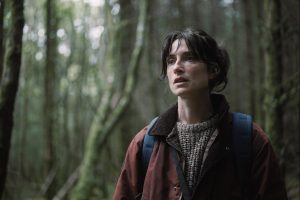
A still from WHITETAIL
HtN: Understood. So, this location is near Kenmare in County Kerry. Is that correct? In a park called … I won’t pretend to be able to pronounce the name…
NL: Gleninchaquin Valley
NO: (laughs) You’ve been practicing. Excellent. Got that one down!
HtN: How did Nanouk pitch this film to you, Natasha?
NO: I’m trying to think back all that time to what happened, but I think (to Nanouk) you sent a lovely email. I think you attached a lovely email with a link to your movie Cobain, along with the script and a personal note to me. And watching Cobain, I was like, “Yeah, this is the kind of filmmaking I’m into. I want to be part of it.” You just can tell from the work that Nanouk’s done: there’s a lot of soul and integrity in the films she makes. And I think this has happened with Whitetail once again. And with the script, it was set in Ireland, a biodiversity-ranger drama, and it was a lot for me to get my teeth and claws into. It was just a big yes quite quickly. I think I might have slept one night on it and went, “Yeah, please.”
HtN: Speaking of Cobain, Nanouk, that was your last feature, which came out in 2018. You’ve done a lot of other things since then, including video installations and opera. Why was this the right time to return to feature filmmaking for you?
NL: Well, it was mostly the pandemic that led me astray. COVID came and then I was doing so many things. I’ve never worked as hard as then. That’s so strange. So, I was doing theater and opera, I was doing video installations, and I learned so many things working with the moving image but in another arena. And I really wanted to do film again. So, I was very, very happy that we could go forward with this movie. I don’t want to wait so long next time.
HtN: I know you worked with a casting director to find your actors, but can you talk about that process a little bit? I love The Quiet Girl, and I love Andrew Bennett in it. How did you cast him and the others?
NL: Well, the casting director thinks a lot about the characters and then she proposes different actors to me. And sometimes they do a little reading or sometimes I just meet them online to have a talk. But we were very, very happy with Andrew and also Aaron McCusker. He came on quite early. And yeah, I think the Irish are particularly talented actors and they can do so much, they can go into American films, they can do films in the UK. But even the day players were very good. I mean, it’s amazing their level of acting; I was saved by the casting director because, of course, I didn’t know them all.
HtN: And of course you had probably seen Natasha in Peaky Blinders. Was she the first one to be cast in this film?
NL: No, not at first, but very early on.
HtN: Natasha, this is quite a different set than on Peaky Blinders. What was it like shooting on location compared to some of the other work you’ve done?
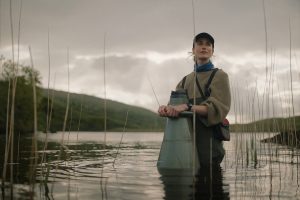
A still from WHITETAIL
NO: Oh man, the project I was on before this one was a show called The Wheel of Time. And that couldn’t be more different. It was very high fantasy, big costumes, smoke machines, lights, studios and all the things. Whitetail was just a literal breath of fresh air. It was like I was in real time. It felt so alive, it felt like I was being shot doing very natural things. And there’s something so lovely about that as an actor. It’s just like they’re dancing with you, the team, and you’re in the forests and the trees are talking to you, along with the birds, and it’s lovely. I was definitely more awake, as well. I felt like I had a lot of energy. I was in every day and I was in every scene, pretty much. I think the only scene I wasn’t part of was the very opening of the film.
NL: I remember in the beginning when you came in with your own clothes and I was a bit intimidated by the star. And then you would take on Jen’s clothes and go to the forest. And then you really transformed into this other person.
HtN: What do you want this story to say about our relationship to the natural world, Nanouk?
NL: Well, for me it’s a story about healing and how nature can help you, how nature is sort of indifferent to what you are experiencing, but that’s not a bad thing, actually. That’s a good thing. It’s like you can have pain and you can have grief and you can also regenerate yourself. The whole crew, they came from Dublin and they usually shoot in Wicklow and places like that. And I brought them to this Gleninchaquin Park and they were like, “I didn’t know this existed. Why am I not coming down more often?” It was like we took all that in. It helped us.
HtN: What a wonderful thing you did for them. You healed everybody on the set. Congratulations on the film and thank you so much for talking to me.
NL/NO: Thank you!
– Christopher Llewellyn Reed (@ChrisReedFilm)


